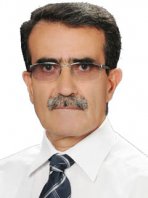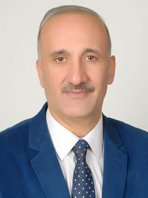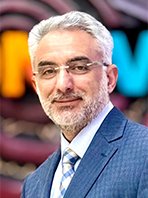İmtihan için cennetten indirildiğimiz "geçici salon” dünya birçok metaforla anlatılabilir.
Bunlardan birisi de: "Dünya bir film platosu” gibidir.
Gazdan, sıvıya, sıvıdan katıya dönen dünyanın da için de bulunduğu güneş sistemi insan açısından "bir film platosu” şeklinde ele alınabilir.
Yüce Allah film platosunu hazırladıktan sonra başrolün sahibi olarak insanı birçok hikmete binaen cennetten dünyaya indirdi.
Şimdilerde sahnenin sahipleri yukarıdan asansörle iniyorlarya, öyle!
Film platosunu hazırlayan Allah Teâlâ senaryoyu da yine insanlar arasından seçtiği elçileri vasıtasıyla yazılı olarak, bir kitap şeklinde gönderdi.
Film platosuna inen ve orada ellerine tutuşturulan senaryoyu okuyan insanlar için son görev ise başrol konusunda tercih hususuydu.
İyi insan ya da kötü insan olmak insanın kendi tercihine bırakılmıştı.
Senaryoda iyi ve kötü insanların rolleri, replikleri, davranış şekilleri ayrıntılı olarak verilmişti.
Kimi iyiliği kimi kötülüğü seçti.
Hz. Âdem ve Hz. Havva iyiliği seçerken İblis kötülüğü tercih etti.
Hz. İbrahim iyilerden olurken Nemrut kötülükte ısrarcı oldu.
Hz. Musa iyiliğin yoluna düşerken, Firavun da ateşe koştu.
Hz. Muhammed cennete dönüşün asansörüne binerken öz amcası Ebu Lehep ateşin babalığına talip oldu.
Ramazan ayı Kur'an ayı dostlar.
Kur'an-ı Kerim 6236 ayette hangimizin hangi durumda iyi veya kötü rolü tercih edeceğini tespit için gönderildiğimiz dünyanın bütün senaryosunu aklı keskin kalbi uyanık insanlara ayrıntılarıyla anlatır.
Şu mübarek günlerde tefekkür/teemmül/taakkul/tedebbür ve tezekkürle Kur'an-ı Kerim'i okuyalım ve rolümüzü netleştirelim.
Yukarıda verdiğimiz misaller üzerinden kendimizi hesaba çekelim.
Başrol demiyiz?
İyi insan mı, kötü insan mıyız?
Daha da acısı nedir biliyor musunuz?
Yoksa silik/etkisiz/ezik bir figüran mıyız?
Zira dünyaya başrol oyuncusu olarak kâinattan süzülerek ona halife olması gayesiyle asansörle dünyaya indirilen insanın ezik bir figüran olarak yaşaması en büyük israftır.
Kendini hiçbir işe yaramayan içi çürümüş duvara dayalı boş bir kütük olarak inşa eden insanın varacağı yer sadece cehennemdir.
Bu ibretlik kütük metaforunu Allah bize bakın nasıl anlatıyor:
"Onları gördüğün zaman, görünüşleri hoşuna gider. Konuşurlarsa sözlerini dinlersin. Onlar, dikilip dayanmış kütükler gibidir. Her gürültüyü kendi aleyhlerine sanarlar; onlar gerçek düşmandır; onlardan sakın. ALLAH onları kahretsin; nasıl da çevriliyorlar!” (Münafikun, 63/4)
Haydi! Bu konularda biraz düşünelim.
"Bir saat tefekkür bir sene nafile ibadetten üstündür.”
Hz. Muhammed (s.a.v.)
Are You Playing the Leading Role or Are You an Extra?
The world, which is the "temporary hall" where we are sent down from heaven for testing, can be described with many metaphors.
One of them is: "The world is like a movie set."
The solar system, including the earth, which turns from gas to liquid and from liquid to solid, can be considered as a "film plateau" from a human perspective.
After preparing the film set, Almighty Allah brought man down from heaven to earth, as the owner of the leading role, based on many wisdoms.
Nowadays, the owners of the stage come down from above by elevator, that's right!
Allah Almighty, who prepared the film set, sent the script in writing, in the form of a book, through the messengers he chose from among the people.
The last task for people who went to the film set and read the script handed to them there was the choice of the leading role.
Being a good person or a bad person was left to one's own choice.
In the script, the roles, lines and behavior patterns of good and bad people were given in detail.
Some chose good, some chose evil.
Hz. Adam and the Prophet. While Eve chose goodness, the Devil chose evil.
Hz. While Abraham was one of the good people, Nimrod insisted on evil.
Hz. While Moses fell on the path of the good path, Pharaoh ran into the fire.
Hz. While Muhammad was getting into the elevator of returning to heaven, his own uncle Abu Lahep aspired to be the father of fire.
Ramadan is the month of the Quran, friends.
In 6236 verses, the Holy Quran explains in detail the whole scenario of the world to which we have been sent to determine which of us will choose the good or bad role in which situation, to people with sharp minds and alert hearts.
In these holy days, let's read the Holy Quran with contemplation/deliberation/appreciation and appreciation and clarify our role.
Let's hold ourselves accountable through the examples we gave above.
Aren't we talking about the leading role?
Are we good people or bad people?
Do you know what's even more painful?
Or are we an insignificant/ineffective/loser extra?
Because it is the biggest waste for a person who is taken down to the world by elevator with the aim of floating out of the universe as the leading actor and becoming its caliph, to live as a loser extra.
The only destination for a person who builds himself up as an empty log leaning against a rotten wall that serves no purpose is hell.
Look how God explains this exemplary log metaphor to us:
"When you see them, you like the way they look. If they speak, you listen to their words. They are like logs standing firm. They think that every noise is against them; they are the real enemy; avoid them. God damn them; How they are being turned!” (Munafikun, 63/4)
Lets! Let's think a little about these issues.
"An hour of contemplation is superior to a year of unnecessary worship.”
Hz. Muhammad (pbuh)















